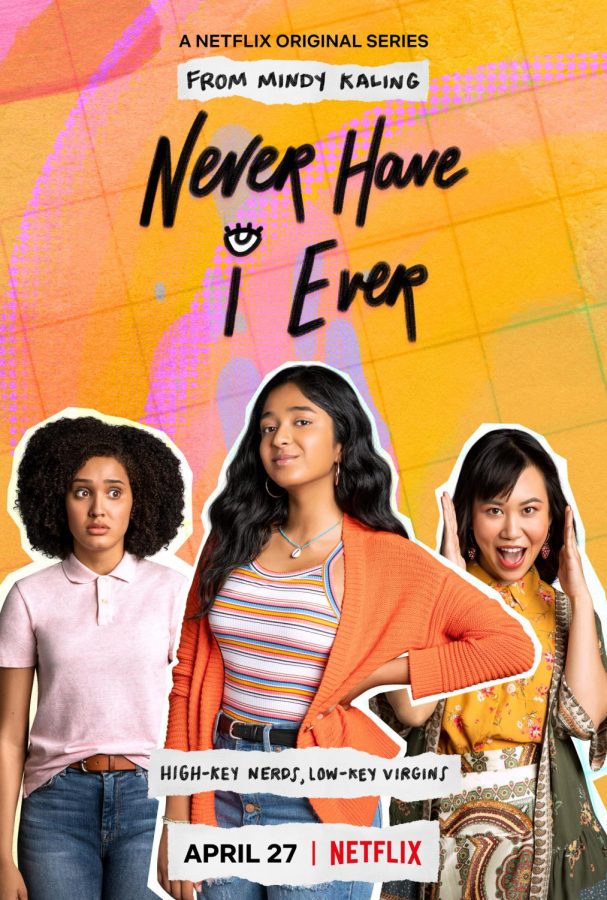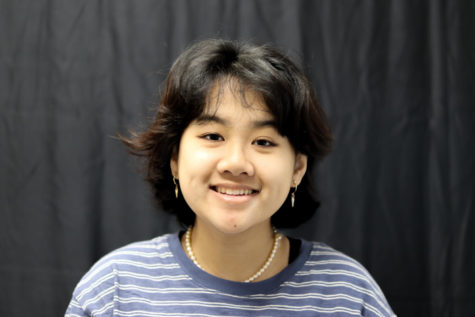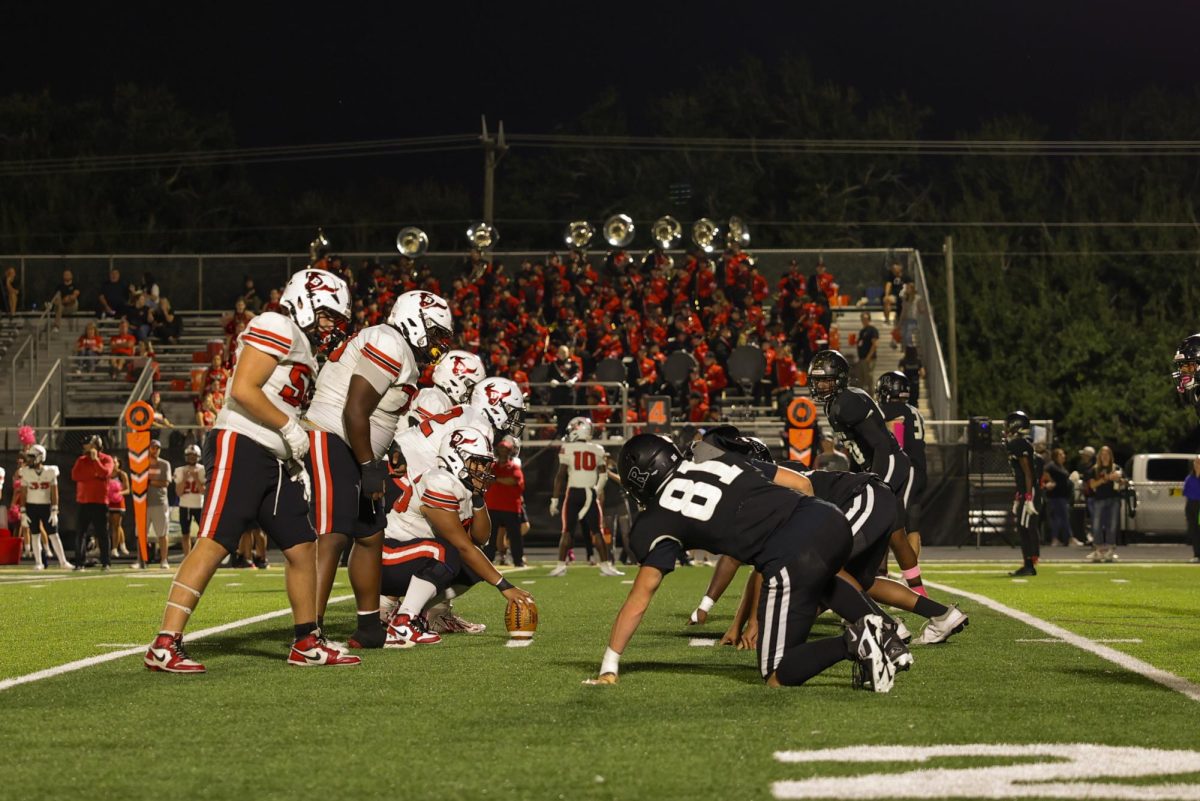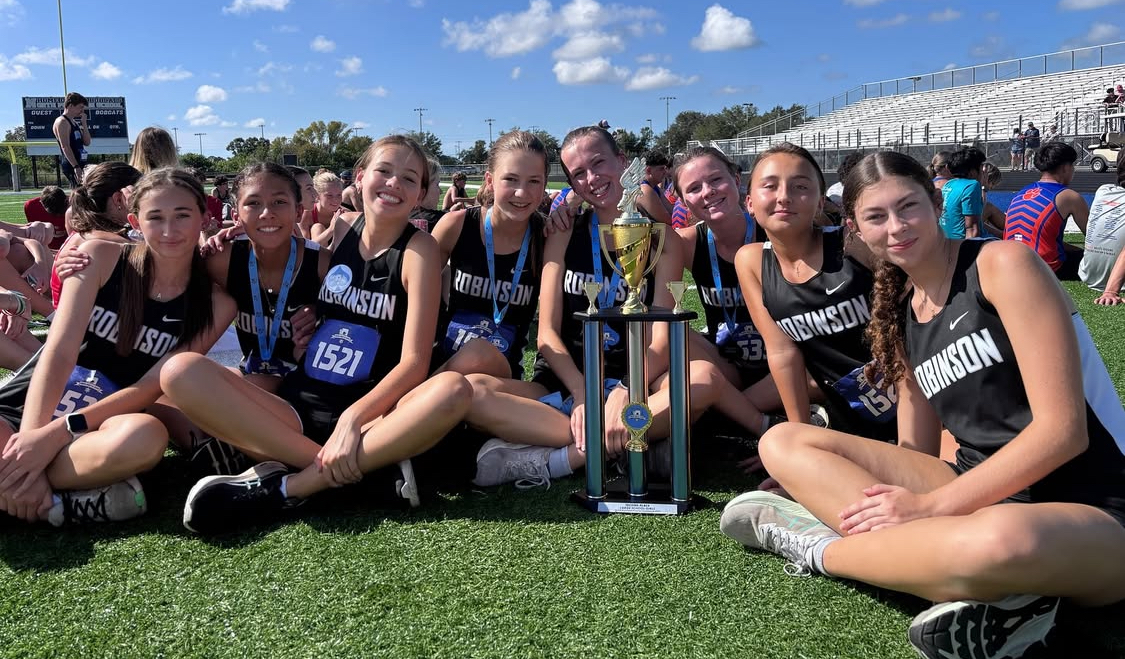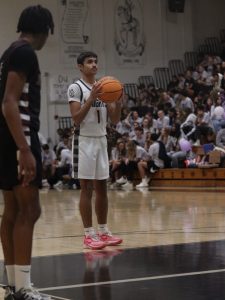Review: Never Have I Ever hits close to home
Mindy Kaling creates a show that is surprisingly relatable.
Photo IMDb
The promotional poster for the new Netflix series, Never Have I Ever.
May 18, 2020
I’ll admit, I’ve become a sucker for coming-of-age comedies, and Netflix keeps releasing more of them. Never Have I Ever is a new teen comedy about Devi Vishwakumar, a first-generation Indian-American teenager who has to deal with both relatable struggles and a couple of traumatic events, all while dealing with her cultural identity.
The show itself is as basic as most coming-of-age films Netflix has been releasing; the main protagonist, Devi, is a quirky and not-so-popular student who’s lusting for popular jock, Paxton Hall-Yoshida. Her story is narrated by tennis legend, John McEnroe, who is her father’s idol. She has a group of supportive best friends, who, just like her, also aren’t the most popular people. She has some crazy family drama and constantly reminds her friends and the people around her how much she’s going through, which, despite how much I can relate to her, made Devi one of my least favorite characters on the show.
Never Have I Ever spotlights every flaw and insecurity of Devi’s, highlighting how imperfect she is. There were points in some episodes where I just wanted to fast forward because of how frustrated I was when watching Devi. There were scenes where I just couldn’t pull myself into feeling sympathetic for her. What sucked most about watching her was feeling that all of her mistakes and dilemmas were somewhat relatable. While not all of her choices can be justified, she perfectly embodies an American teenager just trying to live her life normally and having common anxieties about boys, parents, friend drama and college. After all, her character was modeled after Mindy Kaling’s youth, one that many of today’s generation can relate to.
The show gives a lot of room for other characters and their issues that occur while Devi’s busy being self-centered. Her best friends, Fabiola and Eleanor add to the diversity in the cast of this show without making it the only relevant part of their personalities. I found myself more interested in the episode about Ben Gross, Devi’s rival at school than the rest of the season because of the depth in his character and the narration by Andy Samberg. There’s so much potential for each supporting role for future seasons if any, but they’ll most likely be in the shadows of Devi’s complicated life, one that was a little boring at times.
It’s her family life, however, that stood out most to me in the series. Devi has a complicated relationship with her immigrant mother who has very traditional ideas. She envies her beautiful and smart cousin, Kamala, who’s always the center of attention in their household. She has to learn to cope with the death of her freakishly attractive father, Mohan, who died suddenly at her orchestra concert. There was one scene at the end of the season that really broke me to pieces and made me cry. The production of it was pretty simple, nothing too fancy, which really let you take in the emotions from each character. I felt I reflected on my own life after watching that part; it was probably the best scene in the whole season.
The foundation of the show is basic, but there was so much potential from other characters and that one scene at the end that made it interesting to watch. I’m not sure if it deserved all the hype it’s received, but it wasn’t bad and I could see myself watching another season of it. Never Have I Ever has the right idea of what a coming-of-age series should include, it just needs more episodes to prove itself.

